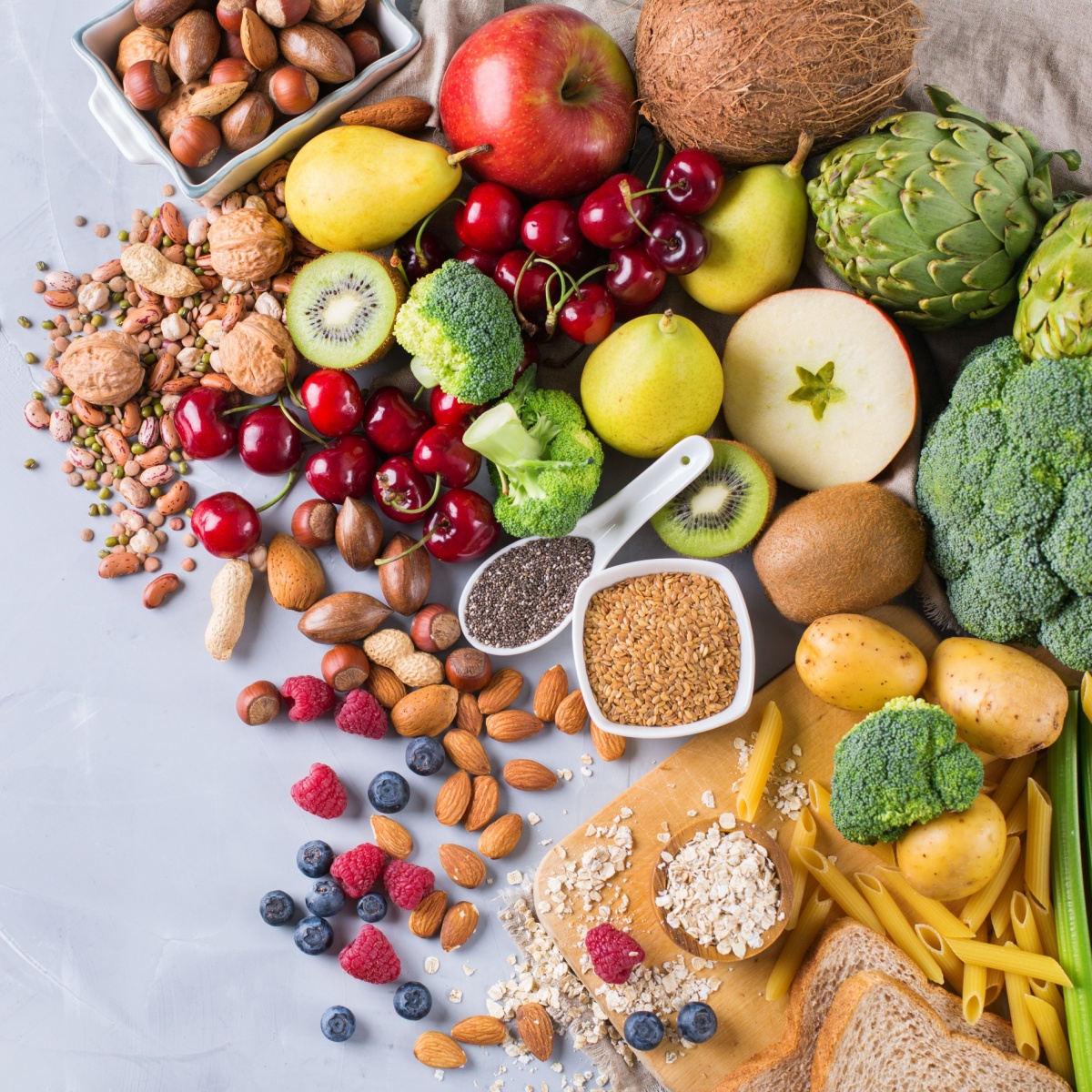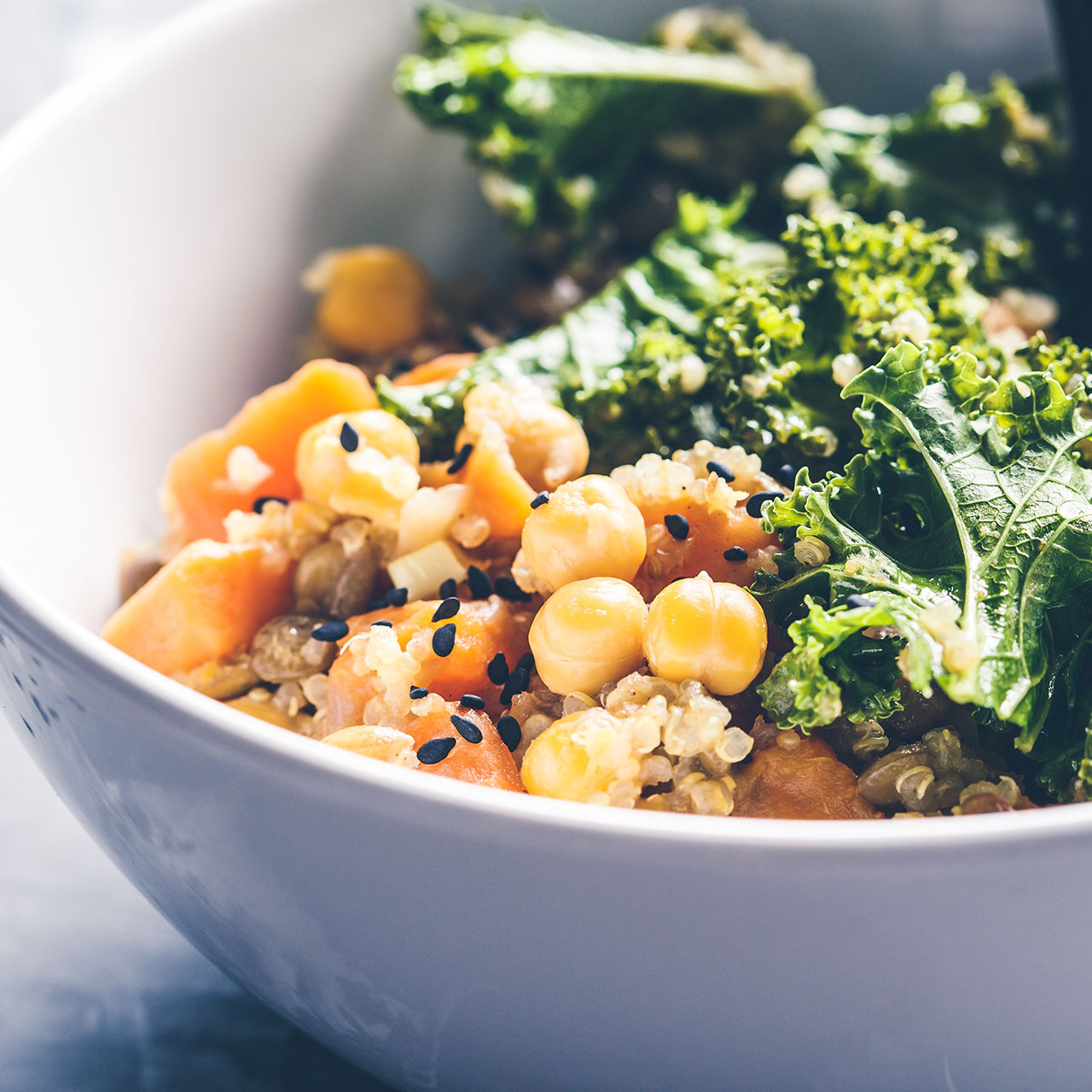Inflammation and weight gain are intertwined in a complex relationship that can significantly impact overall health and well-being. Chronic inflammation, often triggered by various factors that include poor diet and lifestyle choices, can contribute to weight gain and the development of other health issues. However, by targeting specific inflammatory triggers in the kitchen, it’s possible to not only reduce inflammation but also manage weight more effectively.
We spoke with Dr. Paul Daidone, MD, FASAM, and Lauren Kort, registered dietitian at Bariendo, to learn about five ingredients to cut out this spring because they can lead to inflammation and weight gain. They revealed that foods with added sugars, trans fats, artificial sweeteners, processed meats, and vegetable oils are the ones to minimize. Read on to find out more and healthier alternatives to eat instead.


1. Added Sugars
Foods loaded with added sugars may taste like heaven, but they can be a real double whammy when it comes to inflammation and weight gain. Those sneaky added sugars not only spike our blood sugar levels but also trigger our body's inflammatory response. Plus, these sugary delights are usually packed with empty calories, meaning they don't offer much in terms of nutrition but certainly contribute to weight gain.
"Our diets are full of sugary drinks, snacks, and processed foods that cause chronic inflammation. Once you ingest them, these added sugars spike your blood sugar levels, which then increase insulin production, leading to inflammation in the body," says Dr. Daidone.

2. Trans Fats
Foods containing trans fats are like the villains of the culinary world, wreaking havoc on our bodies in more ways than one. These artificial fats not only mess with our cholesterol levels but also stir up inflammation. When we consume foods rich in trans fats, like fried foods, baked goods, and packaged snacks, they can trigger an inflammatory response in our bodies, leading to a host of health issues and making it harder for us to shed those stubborn pounds. What's worse, trans fats are notorious for hanging around in our bodies, sticking to our waistlines and clogging up our arteries, all while fueling the flames of inflammation.
"Trans fats usually appear in an unhealthy form of fat found in processed goods like fried food, baked treats, and margarine. They contribute to inflammation while increasing LDL (bad) cholesterol levels, which raises the risk of heart disease," he reveals. Dr. Daidone further adds that they "are highly caloric and can easily lead to weight gain through excessive consumption. Avoiding these inflammatory fats will lower your risk of chronic diseases while keeping off any excess weight you want gone."
So, while that crispy, deep-fried snack might seem tempting, it's best to steer clear of these trans fat-laden foods if we want to keep inflammation in check and maintain a healthy weight.

3. Artificial Sweeteners
Foods containing artificial sweeteners might seem like a guilt-free indulgence, but these synthetic sweeteners, often found in diet sodas, sugar-free snacks, and low-calorie desserts, can disrupt our body's natural balance and trigger an inflammatory response. Despite their calorie-free allure, artificial sweeteners can confuse our bodies, leading to cravings for more sugary foods and potentially disrupting our metabolism.
Besides inflammation, Dr. Daidone warns that artificial sweeteners can disrupt your gut health and lead to more cravings, "Artificial sweeteners cause increased inflammation within the body along with changes to gut bacteria that lead to weight gain. It’s even been proven that consuming artificial sweeteners makes people crave more sugary things, leading to overeating and, eventually, weight gain."

4. Processed Meats
Processed meats may be convenient, but they're not doing our bodies any favors. Packed with additives, preservatives, and unhealthy fats, these meats can set off inflammation in our bodies, increasing the risk of chronic diseases and making it harder to maintain a healthy weight. What's more, processed meats are often high in calories and low in nutrients, meaning they can easily tip the scale in favor of weight gain.
Dr. Daidone explains the benefits of cutting off these tempting meats, "processed meats are typically high in calories, so it’s a poor choice if you’re trying to keep your weight down. Limiting or even avoiding these inflammatory meats will improve overall health while maintaining a healthy weight."
From bacon to deli meats to hot dogs, these savory treats might satisfy our taste buds in the short term, but the long-term consequences on our health and waistline are less appetizing.

5. Vegetable Oils
Vegetable oils like soybean, corn, and sunflower oil are high in omega-6 fatty acids, which, when consumed in excess, can upset the delicate balance of omega-3 to omega-6 in our bodies and promote inflammation. Additionally, these unhealthy oils are often heavily processed, stripping them of their natural nutrients and antioxidants, while also introducing harmful compounds during the refining process.
"Vegetable oils such as soybean, corn, and sunflower oils are high in omega-6 fatty acids, which can lead to chronic inflammation when consumed excessively," he notes.
He elaborates and says, "Vegetable oils are frequently refined and can carry trans fats or other inflammatory materials. They also cause weight gain because they’re high in calories."

Healthier Alternatives
You might feel like you need to banish all these ingredients from your diet forever to tackle inflammation and weight gain, but finding a balance is crucial. Instead of fixating on restrictions, focus on moderation and the power of addition. Incorporating nutritious foods into your diet can crowd out the less healthy options while still allowing you to enjoy treats in moderation. It's all about making sustainable, long-term changes that support your health goals without feeling deprived.
"The good news is, that we don’t have to completely eliminate all these foods but reducing them is a great step in reducing inflammation and managing weight. Don’t have these foods as a regular part of your diet, rather, save them for special occasions," says Kort.
She also suggests to focus on whole foods that are not processed and full of fiber; "People who eat fiber-rich foods like fruit, vegetables, and whole grains regularly, tend to have lower levels of inflammation in their body. A few eating styles such as the Mediterranean diet include foods that help reduce inflammation and help you manage your weight at the same time. Many of these eating styles include a lot of vegetables, fruit, whole grains, and a moderate to low amount of meat."


























